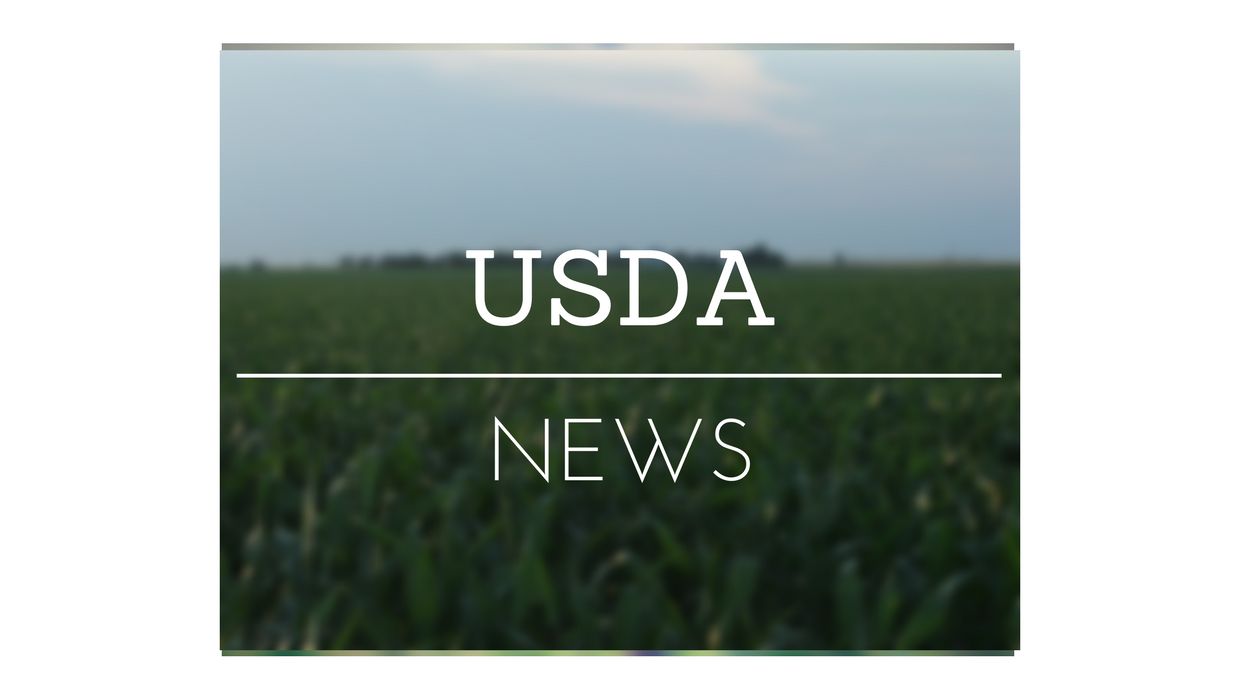USDA announces partnership to ease port congestion, restore disrupted shipping services to agricultural commodities

On March 18 Agriculture Secretary Tom Vilsack announced plans for prepositioning containers of agricultural goods near port terminals to help improve service for shippers of U.S. grown agricultural commodities.
The U.S. Department of Agriculture is partnering with Northwest Seaport Alliance to enhance access to a 49-acre “pop up” site to accept either dry agricultural or refrigerated containers for temporary storage at NWSA in Seattle to reduce operational hurdles and costs, making it so they can more quickly be loaded on ships at the export terminals. The NWSA includes the marine cargo operations of the ports of Seattle and Tacoma and is the fourth-largest container gateway in the United States.
Congestion-induced impacts to vessel schedules and prioritization of returning containers empty to Asia have significantly raised barriers for exporting agricultural products in containers, resulting in lost markets and disappointed customers. The Northwest Seaport Alliance has seen a nearly 30% decline in the export of agricultural commodities in the last six months of 2021 and the ratio of loaded versus empty container exports has shifted to predominately empty containers since May 2021.
USDA’s partnership with the NWSA’s existing near-dock facility at Terminal 46 in Seattle is part of the Biden-Harris administration’s Supply Chain Task Force efforts with state and local governments and builds on earlier efforts. USDA’s efforts to increase capacity at the NWSA follow the Department’s announcement on Jan. 31 of a similar partnership with the Port of Oakland in California, and a U.S. Department of Transportation partnership with the Port of Savannah in Georgia.
USDA continues to seek opportunities to partner with additional ports or other intermodal container facilities to help American farmers and agricultural producers move their product to market and manage the short-term challenges while pressing the ocean carriers to restore better levels of service.
“The pandemic revealed vulnerabilities across our supply system and as the economy has made an historic recovery, it has put additional strain on the supply chain,” Vilsack said. “The Biden-Harris administration is calling out ocean carriers that are taking advantage of the situation to leverage undue profits and are treating U.S. agricultural companies and producers unacceptably. That is why we are using creative approaches to improve port operations while elevating American-grown food and fiber.”
“This new pop-up port project will give Washington farmers a place to store their products so they’re ready to make the next available ship,” said U.S. Sen. Maria Cantwell. “As the Washington growing season ramps up over the next few weeks, this new pop up port will fill up with containers of hay, grains, peas, lentils, refrigerated dairy products, all ready to load onto ships and reach consumers across the globe. This is one tool to help address port congestion, and I will continue to work to hold foreign shipping companies responsible for the price hikes that are leaving our farmers, growers and exporters on the sidelines.”
“Over the past year, The Northwest Seaport Alliance has been working closely with ag exporters to help mitigate supply chain challenges,” stated Ryan Calkins NWSA co-chair and Port of Seattle Commission President. “We appreciate Secretary Vilsack’s leadership and look forward to this pilot program reducing costs for ag producers and helping bring more U.S. exports to foreign markets.”
“In partnership with PCMC, the NWSA has opened more than 60-acres of near-dock storage across our gateway to reduce port congestion and increase export opportunities,” stated Deanna Keller NWSA Managing Member and Port of Tacoma Commission Vice-President “The partnership with the USDA will further our efforts and provide needed relief for ag producers in our region.”
About the partnership
The Farm Service Agency will make payments to agricultural companies and cooperatives that preposition containers filled with American-grown agricultural commodities at the “pop-up” temporary site at the Port of Seattle. Specifically, FSA payments of $200 per dry container and $400 per refrigerated, or reefer, container will help cover additional logistical costs. The sign-up will be streamlined through a central application process with the details available in a Notice of Funding Availability that will be published in the coming weeks. Payments will be made in arrears and verified with the pop-up terminal records.
The benefits of relieving congestion and addressing capacity issues at ports through partnerships like this one at the NWSA go well beyond the local region, as commodities and agricultural products grown and processed from thousands of miles away flow through the Port. American farmers, ranchers, workers, rural communities and agricultural companies throughout the supply chain will benefit from efforts to restore and improve proper service by ocean carriers; and ultimately, getting safe, nutritious U.S.-grown products to consumers around the world.
